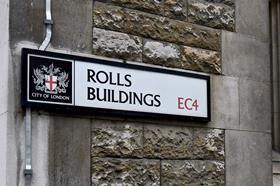A High Court judge has made clear that clearing a strike-out application is still not enough to avoid costs penalties further down the line.

The claimants in Libyan Investment Authority & Ors v King & Ors (Re Costs) accepted they had been unsuccessful in proceedings and would need to pay costs, but disputed the basis for assessment.
They pleaded before the court last month that the claims were neither speculative nor weak, having been ‘heavily debated’ before Judge Barker at the defendants’ strike-out application hearing. The claimants submitted that the judge had concluded there was a proper case to proceed to trial, with real prospects of success.
Mr Justice Miles said it should have been evident from the orders of the judge that although they had permission to carry on the case, the claims had real difficulties.
He added: ‘Although it is right to say that Judge Barker permitted the claims to proceed, that amounts to no more than that the case was capable of getting over the fairly low hurdle of avoiding being struck out.
‘It cannot be an answer to an application of this kind that the case was capable of passing that low hurdle.’
The court heard that in January 2021 the defendants had offered to ‘drop hands’ after the reformulation of the claim at the hearings before Judge Barker. The claimants rejected that offer, as well as a second offer a month later, when the defendants said they would give up any contingent right to claim their costs. A third offer involved an escalating contribution to the defendants’ costs, but this was again rejected by the claimants.
Miles J added: ‘There is force in the defendants’ submission that the offers that they made to drop hands were substantial offers and that acting reasonably the claimants ought to have given very careful consideration to their position at the time those letters were written.’
He acknowledged that the bringing of a failed case of dishonesty did not of itself justify an award of indemnity costs, but this was a speculative claim notable for the ‘thinness’ of the evidence and non-appearance of two witnesses. Costs were awarded on the indemnity basis.



























3 Readers' comments